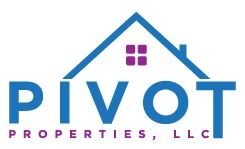
When you visit a lender online or in person, you’ll see some advertised mortgage interest rates. But will you qualify for those rates? Why or why not?
It’s all about risk. The higher the repayment risk, the higher the interest rate the lender will charge.
Lenders will determine your loan interest rate based on several factors — some of which you can influence and others you can’t. So it’s important to understand why rates can vary, and by how much, because even a slight increase in your interest rate can cost you thousands of dollars over the loan’s term.
The good news for home shoppers is that interest rates can be negotiable. You should compare rates (and other loan costs) from several lenders, and see if one will sweeten its offer with a lower rate.
What factors determine interest rates
Lenders weigh several factors in determining your interest rate, including:
Your credit score
This is the single biggest factor — and, of course, the higher your credit score, the better. Most lenders gauge creditworthiness using FICO scores, which range from 300-850.
A score of 720 is the historical cutoff where you can expect to get better rates without any negative rate adjustments by the lender. However, you can often get even better rates with scores in higher brackets.
If your score is low, you may not qualify for a mortgage at all or you may have to put more down, depending on the loan type.
Loan-to-value ratio and down payment
Your loan-to-value (LTV) ratio is another big factor affecting your rate, especially if you have less-than-perfect credit.
LTV describes the ratio between the value of your home loan and the home’s value. The larger your down payment, the less you’ll have to borrow against the value of the home, thus lowering your LTV.
Lenders consider borrowers with lower LTV ratios less risky because they have more equity in the home and are less likely to default on their mortgage.
Your LTV ratio will also determine whether you have to pay private mortgage insurance. For conventional loans, borrowers who want to avoid paying private mortgage insurance will generally need to make a down payment of 20% of the value of the home. FHA purchase loans will allow you to have a loan-to-value ratio of up to 96.5%. USDA, VA and other specialty loan types may allow for a 100% LTV for a purchase loan.
Loan purpose, type and interest rate type
Your interest rate can vary depending on whether you’re purchasing, refinancing, or completing a cash-out refinance. Some programs offer incentives for purchasing a home, and almost all have a higher interest rate for a cash-out loan. The difference often depends on the credit score and LTV ratio.
Rates also depend on the type of loan and interest rate type. Fixed-rate loans will have higher interest rates than the initial interest rates on adjustable-rate loans. While they can vary greatly, 3-, 5-, and 7-year ARMs tend to have an interest rate about 0.5% lower than equivalent 30-year fixed loans.
Loan term
Loans with 20-, 25-, and 30-year terms have pretty similar rates, while 10- and 15-year loans are pretty similar to each other and have rates about 0.5% lower than the 30-year group.
Loan amount
Smaller loan sizes often have slightly higher interest rates to cover the fixed costs lenders pay to obtain and manage the loan during repayment. Whereas loans on the higher end of the conforming loan range (traditional Fannie Mae and Freddie Mac loans) will sometimes have a slightly lower interest rate because they are a little more profitable than smaller loans. Jumbo and super-jumbo home loans, which exceed the conforming limits set for Fannie Mae and Freddie Mac will generally have higher interest rates.
Location
Some locations are more risky for lenders doing business there because of the local default rate, risk of early repayment, and state foreclosure laws.
Ways to lower your mortgage rate
Hoping to get a lower interest rate? You’ll need to improve how you look on paper to lenders. Here are three ways to get started.
Raise your credit score
If you don’t know your FICO credit score — they range from a low of 300 to a high of 850 ― find out. Some credit card companies and banks will provide customers with their FICO credit score for free, or you can order your score on FICO’s website.
If your score seems low, you can request a free annual copy of your credit report from each bureau (Experian, TransUnion, and Equifax) at AnnualCreditReport.com or by calling 877-322-8228.If you spot errors, you can submit a correction request to the bureau(s). Be sure to include copies of all the documentation you’ve kept in correspondence with the creditor. And don’t wait until the last minute. The dispute process takes time.
Increase your down payment
Lenders see large down payments as an indication of a lower-risk borrower, so increasing your down payment may lead to a lower interest rate.
A reputable lender can tell you how the combination of your down payment and credit score will affect your interest rate and closing costs.
Pay points on the loan
Finally, you can often lower your interest rate by paying mortgage points (also known as discount points).
Points are fees paid directly to the lender at the close of your loan. One point costs 1% of your mortgage amount (or $1,000 for every $100,000).
Essentially, this allows you to pay some interest upfront in exchange for a lower interest rate. As a general rule of thumb, you might consider paying points if you plan to own the home for a long time.
Understanding how lenders determine your interest rate — and what you can do to change it in your favor — can help you save big in the long run.

